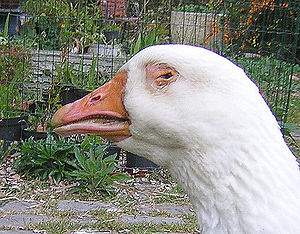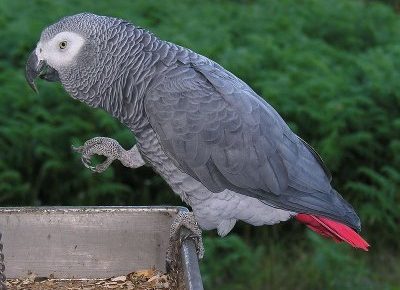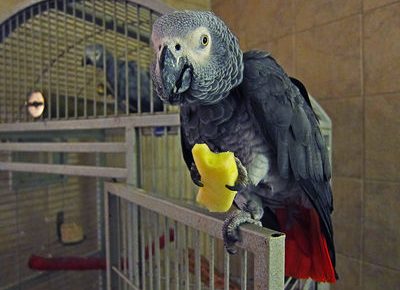
Since your bird won’t tell you he is feeling sick it is important to recognize the signs of a sick bird so you know when a visit to the vet is in order.
- Unusual Droppings – Check both the consistency and the color. Yellow, rusty brown, or black droppings are usually a cause for concern. This could be a symptom of internal bleeding. If the droppings are too runny or too firm, pay a visit to your vet.
- Ruffled Feathers – If your bird sits with its feathers fluffed out for a long period of time, this may be a symptom of respiratory problems or weight loss. If this behavior continues for more than a day or two, your bird may be ill.
- Red, Inflamed, or Runny Cere (Nose) – A red cere could be a sign of a serious illness. Take your bird to the vet wrapped up in a warm blanket.
- Cloudy Eyes – Cloudy eyes or a discharge from the eyes can be a sign of a respiratory, nervous, or muscular disorder. See your vet immediately.
- Reduced Appetite – Birds have high metabolisms so they need to eat well every day. If they don’t get adequate nutrition they will lose weight and this can be very dangerous for them. If you clean the bird cage every day, you will be able to monitor how much food your bird consumes, as well as monitoring your bird’s droppings.
- Open-Mouthed Breathing – This is a sign of respiratory problems which are very serious in birds. Rush your bird to the vet.
- Dirty Feathers – If your bird is too sick to clean his feathers properly, you will notice that the feathers around his face or rump are dirty, messy or stuck together.
- Weight Loss – Since birds conceal weight loss by ruffling their feathers, monitor your bird’s weight with periodic weighing. Weight loss may be a sign of organ malfunction.
- Tail Bobbing – Birds use muscles located at the base of the tail to help them breathe so if they are having trouble breathing they may bob their tails. This is a symptom which appears later on in the illness, so it requires immediate medical attention.
- Changes in Vocalizations – If your bird chirps less often or sounds different for a few days running, this may be a sign of illness.



